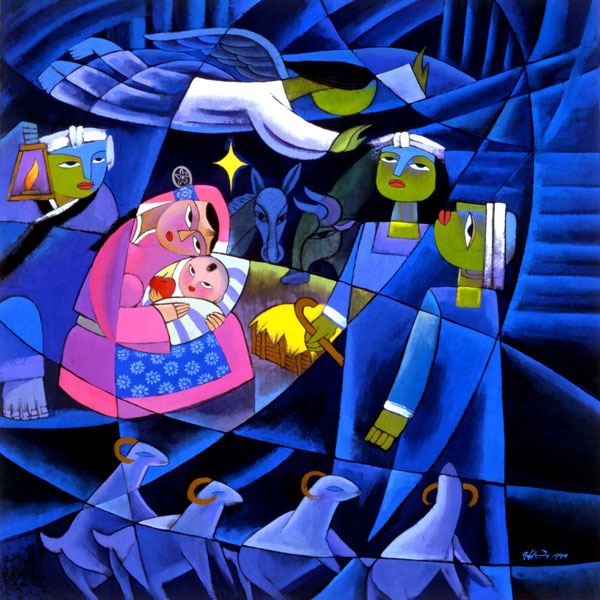It is part of the Christian tradition that Christ was born in the night. The life=giving truth often
comes to human beings in some kind of mental night as they endure and try to understand it.
The night is the dark side of life in which the familiar shape of our world dissolves and we lose
some of our confidence, can indeed lose our way. In this unnerving darkness is set the gift of
sleep, a gift because we have to receive it without any exertion, without any taking, we have
only to let it come. The night is God’s daily reminder that we are creatures with many
limitations who can stand even sanity ony so long and must after sixteen or seventeen hours of
it give up.
The night can be seen as a realm of helplessness and fear. We are “in the dark” when we are at
the mercy of the unknown in ourselves or our future or are suffering without any sign that
anyone cares or understands. But night is also the dispenser of healing, restoration, and insight.
From this congenial aspect of night comes the Christian tradition that the definitive coming of
the truth and love of God was in the night. All our human darknesses contain not only the
formidable but, somewhere, hidden and needing some search and identification maybe yet
nevertheless there, that which is for us, on our side.
The image of night is often the image for the life of faith itself. As we try to live the Christian life
it often seems more like the night than the day in that most of the time what we should do and
think for God and about God is not given to us in a luminous certainty. God’s presence in our
lives is not located in any recognizable sensation.
One of the most enduring and helpful statements of this peculiar quality of our relationship
with God was given by an unknown writer in the fourteenth-century under the title The Cloud
of Unknowing. The writer argues that at whatever stage we are in the Christian life God is
calling us to a further stage. He assumes the place of prayer as the chief nourisher of faith. He
recommends that we cultivate an attitude of longing desire for God and continuing love of God.
It is by this blind wanting and trust that communion with God comes about, not by thought, not
by feeling. In prayer the mind eventually has to fall silent, functioning in a “cloud” of
unknowing. Gradually there develops a deepening confidence that all the time, whatever
happens, we are in God’s presence and can trust that the next step will become clear, and that
we will be offered sufficient grace to take it.
Kevin+


Recent Comments